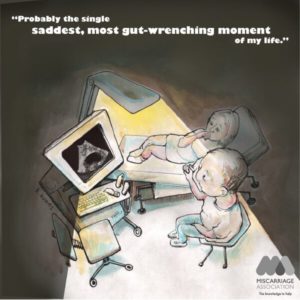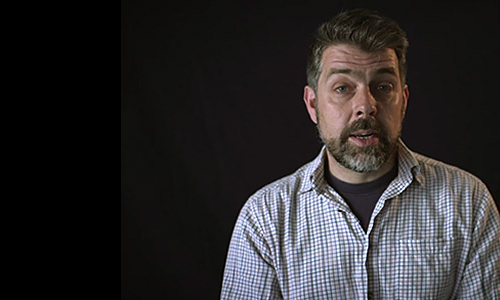Partners
Pregnancy loss can be tough for anyone. It can be hard to get information, or to find people who understand and who can offer support and a listening ear.
That can be even more so for partners. By ‘partner’ we mean the person in a couple who does not experience the physical loss. Often expected to be strong, silent and supportive, you may feel invisible, as if your feelings and needs – whatever they are – aren’t that important.
Research [1] amongst 160 people whose partners had been through a miscarriage, ectopic pregnancy or molar pregnancy showed that:
Before the loss the majority of partners said they felt ‘happy’, ‘excited’, ‘thrilled’ or ‘delighted’ about the pregnancy. 55% had already picked a name for their baby, over half had read a pregnancy book and a third read parenting books too.
 After the loss many partners reacted with feelings of sadness (85%), grief (63%) and shock (58%). But nearly a quarter didn’t share their feelings with their partner, usually for fear of upsetting them more or saying the wrong thing. Those who did share their feelings often found that it helped them both through their loss.
After the loss many partners reacted with feelings of sadness (85%), grief (63%) and shock (58%). But nearly a quarter didn’t share their feelings with their partner, usually for fear of upsetting them more or saying the wrong thing. Those who did share their feelings often found that it helped them both through their loss.
More recent research [2] has shown that some partners experience anxiety, depression and/or symptoms of post-traumatic stress after pregnancy loss, and highlights how important it is to attend to their needs for treatment and support too.
Getting support from others was more of a problem. Friends and family might ask how the person who miscarried was coping, but never think to ask their partner, as Tom describes.
Resources for partners
Whatever you feel about your partner’s miscarriage, ectopic or molar pregnancy, we hope that you can find information, support and perhaps comfort here. We have:
Information: You’ll find information on signs, symptoms, diagnosis and treatment of miscarriage, ectopic and molar pregnancy in this section. You can also find information about pregnancy loss and the workplace. While the right to time off is only for the person experiencing the physical loss, you may still find it helpful to look at our information for employees and share our information for employers with your manager.
Films: Mark shares his reflections here on his and his wife’s experience of miscarriage. In two short films, Steve McNeil and his wife Tina talk about deciding to try again after a missed miscarriage, and about their experience of talking about their miscarriage with others and how good support from family and friends helped them through. In this BBC film, Al, Gareth, James and Simon, share their thoughts and experiences. And Bill, Peter, Mel, Steve, Nikhil and Mike share their stories* about their partners’ losses (*partners’ stories, voiced by actors).
Podcasts: In Episode 9 of his ivfDAD podcast, Chris shares his thoughts and feelings about experiencing both fertility problems and miscarriage. Keyan talks on The Extra Inch (Spurs Podcast) about his and his wife Amy’s experience of recurrent miscarriage, how it affected him and their relationship, and how others can find support (please note that the link starts with some adverts before taking you to the section with Keyan talking, at about 42 minutes in).
Leaflets: Our ‘Partners Too’ leaflet Partners Too is written for you, the partner of someone who has had a miscarriage, ectopic or molar pregnancy. Men & Miscarriage is a previous version. The leaflet Supporting someone you know provides tips for family and friends on how to support both partners after pregnancy loss.
Stories: Longer personal stories written by partners like Dominic, sometimes years after their loss/es, sometimes recalling the trauma of what they saw their partner go through.
Images: A series of images, illustrating quotes from partners.
Support: Our staffed helpline, support volunteers and online support spaces are all here to help.
[1] Research carried out in 2014 by Dr Petra Boynton, University College London, and funded by a Beacon Bursary.
[2] Differences in post-traumatic stress, anxiety and depression following miscarriage or ectopic pregnancy between women and their partners: multicenter prospective cohort study, J Farren et al; Ultrasound in Obstetrics and Gynecology, January 2021

